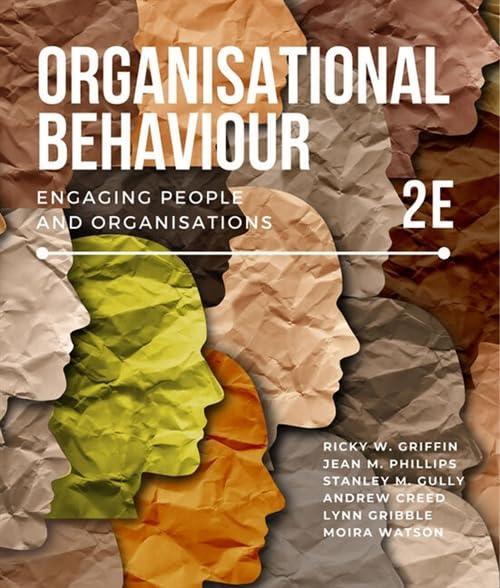John Barrington, the CEO of Railcraft, a $98 million train engine repair company, has just received a
Question:
John Barrington, the CEO of Railcraft, a $98 million train engine repair company, has just received a troubling email. The Australian Government is reporting that 36 older freight trains repaired by Railcraft were removed from service in New South Wales, Victoria and Queensland because the diesel engines were exceeding Tier 2 nitrogen oxide exhaust emissions standards, and 15 new freight trains were removed because they were exceeding Tier 4 emissions standards, both of which contribute to photochemical smog. The government claims that Railcraft parts are the cause of the problem. Within two hours, more calls come in and a further 19 trains are removed because of what the government claims are problems with Railcraft parts. Although word has not yet reached the press, the Environment Protection Authority (EPA) has been notified of the problem. John fears that if his lenders learn of the claims, the company’s loans might be pulled. Not only would this be bad for Railcraft, but it would jeopardise his own financial stake in the company. Because the EPA has begun an investigation, John reasons, the only thing to do is to sit tight until more details are revealed. Unfortunately, the company is also in the middle of its annual audit. As part of the process, the CEO has to sign a letter stating that the auditors have been informed of any outstanding circumstances that more than likely could have a negative financial impact on the company. Disclosing the EPA investigation could mean the financial demise of Railcraft. John reflects that in this industry, there’s a very tight code of ethics about the use of drugs or alcohol by a manufacturer’s employees, but there’s nothing that tells you how you’re supposed to deal with reporting this type of information.
Question:
John is in a dilemma: should he make the decision to disclose the information and risk the jobs of hundreds of employees and his own financial stake in the company, or should he stay quiet until he has more information, even though this may damage people’s health? What would you do in this situation?
Step by Step Answer:

Organisational Behaviour Engaging People And Organisations
ISBN: 272389
2nd Edition
Authors: Ricky W. Griffin, Jean M. Phillips, Stanley M. Gully, Andrew Creed, Lynn Gribble, Moira Watson





